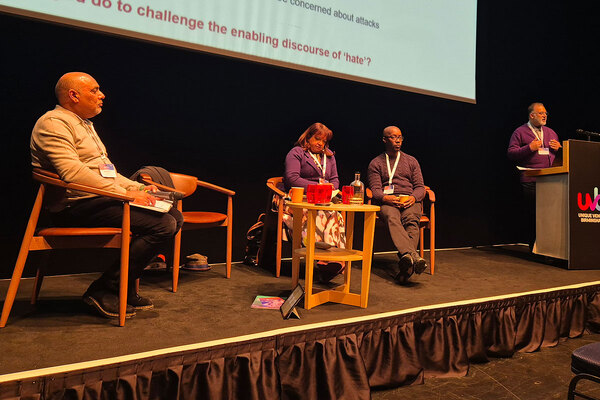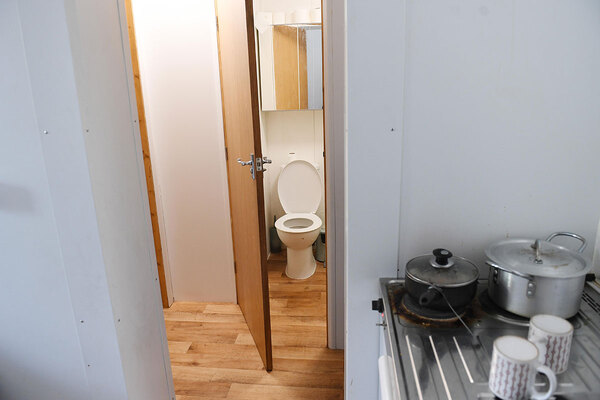You are viewing 1 of your 1 free articles
When can social landlords directly award contracts?
Kuldip Dhanoya, David Meecham and Shazia Bashir of TLT review when social landlords can directly award contracts under the new Procurement Act 2023
The long-anticipated changes to the Procurement Act will have implications for social housing providers, including on when registered social landlords (RSLs) can directly award contracts without following a competitive tendering exercise.
Under the new regime, RSLs will remain contracting authorities for the purposes of the Procurement Act if they are wholly or mainly funded out of public funds or be subject to public authority oversight and not operate on a commercial basis.
The act only provides examples of factors, which may be taken into account when determining whether a person operates on a commercial basis so RSLs will need to continue to consider and apply the “commercial basis” test to their individual organisations on a case-by-case basis.
For many years, the Teckal exemption has proved to be a very useful tool in allowing social landlords to directly award contracts to their subsidiaries without the need to follow a regulated procurement process. To recap, the 1999 judgment of Teckal (C-107/98) established that contracts could be awarded by one contracting authority to another legal entity, referred to here as a “controlled entity”, provided that the arrangements passed the “control” and “activity” test.
The test requires the awarding authority to exercise control over the subsidiary, which is similar to the control it exercises over it owns departments and 80% of the activity of the subsidiary must be carried out on behalf of the awarding authority. A further requirement is that there is no direct private capital participation in the subsidiary.
The current procurement rules also allow for a range of variations under the Teckal principle to the extent that a controlled body can directly award under similar circumstances to its controlling ‘parent’ entity (often referred to as ‘reverse’ or ‘vertical’ Teckal) and also horizontally to ‘sibling’ subsidiaries (commonly referred to as ‘horizontal’ Teckal arrangements).
Given the popularity of Teckal arrangements in the past decade or so, it will also no doubt be seen as a positive that public authorities and a legal entity will still be able to enter into such arrangements under the Procurement Act 2023 (PA 2023). However, there are a couple of nuanced changes which RSLs will need to be aware of when structuring commercial arrangements under the new act.
Under the current procurement rules, it is permissible for a (contracting authority) subsidiary to directly award a horizontal arrangement to a sibling trading subsidiary controlled by the same ‘parent’ public body, even when that trading subsidiary’s activities are not restricted by the 80% rule (ie it is able to trade freely within the market).
The Procurement Act appears to remove this current flexibility, meaning that direct awards between sibling subsidiaries will only be permissible if both subsidiaries carry out more than 80% of their activities on behalf of the parent entity, or another entity controlled by that entity.
Furthermore, social landlords will need to bear in mind the anti-avoidance mechanism set out under Section 2 (10) of the new act. This ensures that where a contracting authority has awarded an exempt contract to a controlled trading entity, the obligations to comply with the Procurement Act 2023, when awarding any relevant sub-contracts, passes from the contracting authority to that entity.
“As registered providers will remain caught by the public procurement rules under the Procurement Act, the subtle changes introduced under the act will remain as relevant to them going forward”
Both local authorities and registered providers have benefited from the Teckal exemption when structuring the delivery of social housing projects. As registered providers will remain caught by the public procurement rules under the Procurement Act, the subtle changes introduced under the act will remain as relevant to them going forward.
Under the Public Contracts Regulations 2015 some contracting authorities have benefitted from being able directly award a horizontal arrangement to a sibling trading subsidiary where that entity is controlled by the parent company, but is neither itself a contracting authority, nor does it satisfy the 80% activity test.
Going forward, the grant of a contract from a parent company to a subsidiary is still likely to be exempt, provided it meets the Teckal test. However, greater care will need to be taken (and additional due diligence will need to be undertaken) when awarding related sub-contracts with a group company structure, be that either horizontally, or vertically.
Kuldip Dhanoya, partner and head of procurement, David Meecham and Shazia Bashir, partners in the housing and regeneration team, TLT
Sign up to the Regulation and Governance Conference 2024
At a time of major regulatory change, the Regulation and Governance Conference is designed to give board members and governance and risk professionals the insight they need to plan and prioritise effectively.
Join more than 250 delegates and 45 speakers to confidently navigate the change ahead and ensure you have the right governance structures and assurance frameworks to keep tenants safe and run a viable business.










